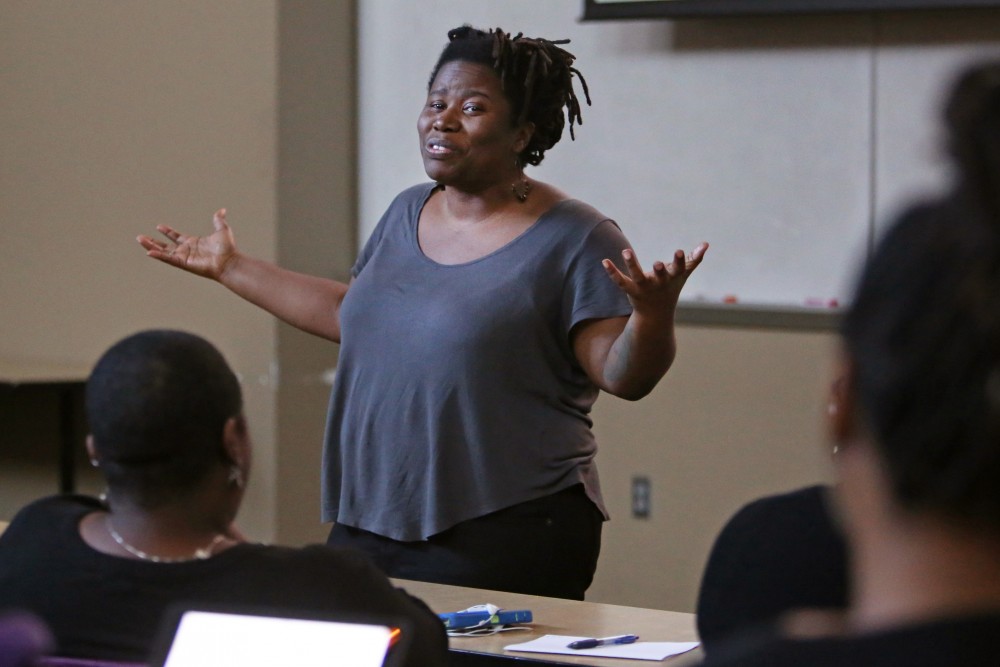Last week, a new lecture series at the University of Minnesota demonstrated the commonalities between marginalized communities and “The Walking Dead” — a TV show chronicling apocalypse survivors escaping zombies.
Wellness Wednesdays, a new project led by the University’s School of Public Health, is a series dedicated to “pursuing wellness in less than traditional ways,” said project organizer Lauren Eldridge, the School of Public Health’s coordinator of diversity, equity and inclusion.
Over the course of the semester, SPH will offer two more Wellness Wednesday lectures featuring women of color sharing their unique perspectives on health-related issues.
The first Wellness Wednesday speaker was Irna Landrum, a social justice organizer and activist whose lecture drew a parallel between social justice and “The Walking Dead” to make a point about privilege and inequality.
“It just illustrated what [it is] like for a group of people to share their collective hope, but also have gone through collective trauma together,” Landrum said.

In the post-apocalyptic TV series, the world has been overtaken by zombies and a group of survivors form a team, fight the zombies and eventually reach the Alexandria Safe Zone, a community protected from zombies.
Once in the Safe Zone, the survivors encounter residents living a more affluent lifestyle, shielded from outside dangers.
Landrum said her talk covered how the show’s contrast between a life of trauma and a life of wealth and stability exemplifies the disparity between marginalized and privileged groups in the U.S.
“They have experienced a great lack of resources. They’ve experienced unprecedented danger,” she said of the show’s team of survivors. “They walk into a community that doesn’t fully understand what it is that they’ve been through.”
For the lecture’s 10 to 15 attendees, many found Landrum’s parallel unique and eye-opening, and Landrum said the feedback was positive.
“I think people were really self-reflective in ways that I was pleasantly surprised by,” she said. “I think some people were just really processing that anyone could think this deeply about The Walking Dead.”
Some students hope that this Wellness Wednesday event will provoke deeper conversations about privilege, specifically when it comes to trauma and health.
“Historically, and including today … there are enormous disparities in treating healthcare for marginalized groups,” said Aparna Ramen, a master’s student studying epidemiology at the University. “It’s not just marginalized people who need to care about this because it has to be everyone, and otherwise change isn’t going to happen.”
Landrum said she hopes her lecture inspires students in the SPH to view health and wellness through the lens of diversity and inclusivity.
“If the goal for people who are in the School of Public Health is to think about broader community health, then inequality and inequity and disparity have to be a core part of that thinking,” she said.
Elizabeth Stangeland, a human resource development senior at the University who attended Wednesday’s talk, said her worldview was broadened by the lecture.
“Everybody has the responsibility to pass on the wisdom and start conversations … with the intention of positive change and inclusivity,” Stangeland said.







